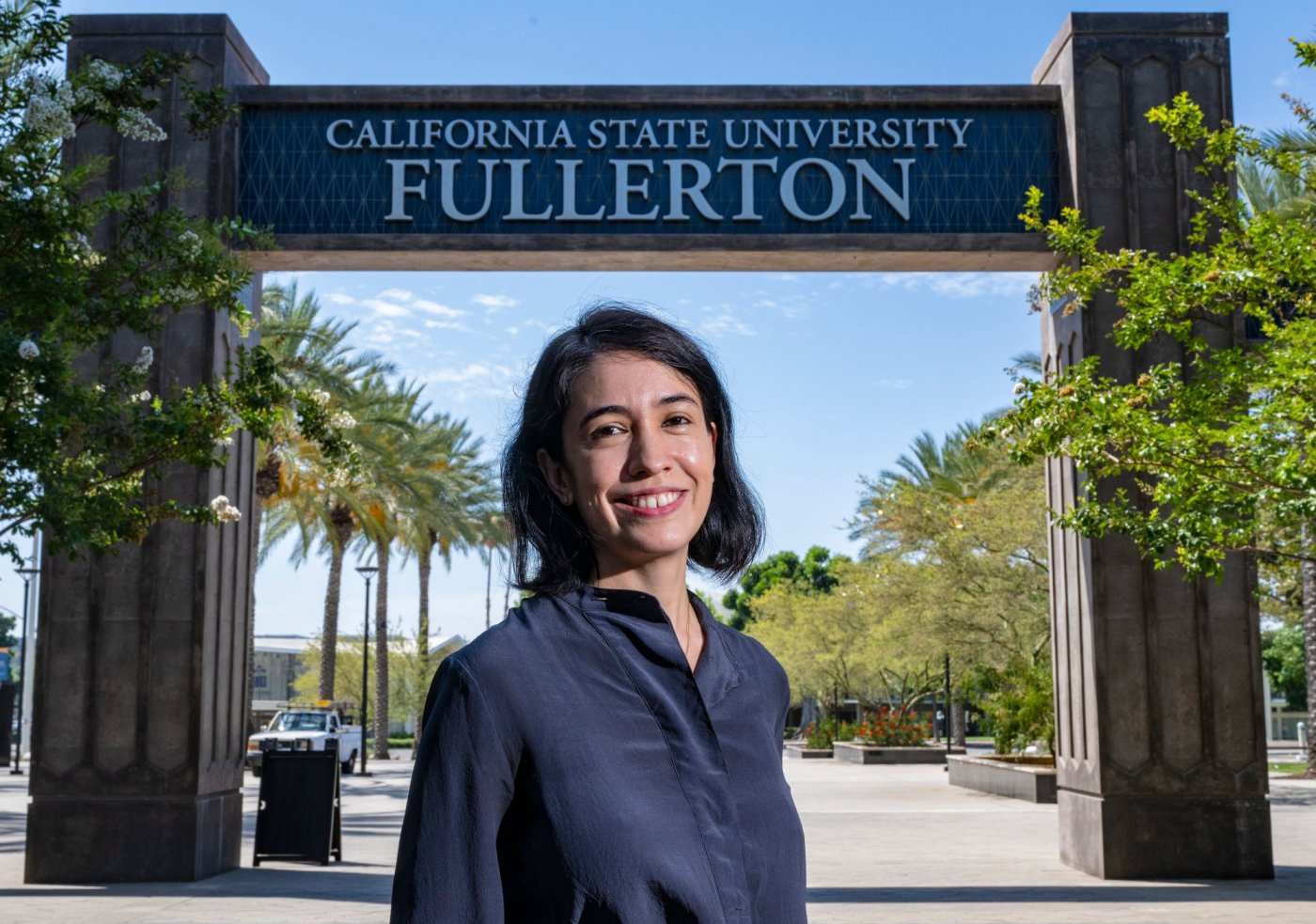She studies medieval literature, yet her research is as relevant today as ever.
Cal State Fullerton professor Elise Wang is one of 28 scholars across the country selected for the 2024 Andrew Carnegie Fellows Program, one of the nation’s most prestigious grants for social science and humanities researchers examining pressing societal issues.
So, what can someone studying Chaucer tell us about America in 2024?
It turns out quite a bit, Wang would say.
Her book project, which she will work on during the two-year fellowship, is titled “That’s What They Want You to Think: Identifying Dangerous Conspiracy Theories.”
Wang says that medieval texts, often revolving around miracles and sainthood, lay out narrative arcs that reveal a lot about the types of not-exactly-true stories people believe and why, structurally, they’re appealing.
“A lot of the academic conversation about conspiracy theories focuses on the believer,” Wang said. “Why do people believe? What brings them to conspiracy theories? How do we get them out of it? It’s really focused on the psychology of the believer.”
“But I didn’t really see anybody talking about the fact that conspiracy theories are also stories, they’re narratives,” Wang added. “And literature has the tools to talk about stories. So it seemed like there was a gap in our understanding of how conspiracy theories worked because we were so focused on the believer.”
Elise Wang, an assistant professor at California State University, Fullerton, talks about being named one of the 2024 Class of Andrew Carnegie Fellows, in Fullerton on Friday, Aug. 2, 2024. Wang researches what literature tells us about conspiracy theories and the spread of misinformation. (Photo by Mark Rightmire, Orange County Register/SCNG)
Related Articles
SJSU views San Jose housing tower as boost for students and downtown
New FAFSA process hopes to address issues from last year’s botched launch
Elias: New UC school year will look a lot like the last one
Muwekma Ohlone Tribe demands return of artifacts, remains as protest winds through Bay Area
SJSU hits final stages to prep new San Jose student housing tower
Wang says that today we typically classify stories neatly into two categories: fiction or nonfiction.
But medieval readers considered stories across a spectrum.
“There were categories of fiction and nonfiction and miracles and religious stories,” Wang said. “The genres in the medieval period were much more mixed, and some medieval readers were much more flexible in how they related to the truth of a story.”
For example, she points to the archaic genre of historia, which she describes as a “punched up” version of history.
“It was understood that the author would embellish to make the story better,” Wang said. “And that wasn’t considered fiction. It was just considered better writing.”
“The reason I say this is I think one reason we have such trouble with conspiracy theories is that we really don’t know what to do with the fact that many basic tenets of the theories are provably false,” Wang added.
For instance, it’s easy to prove the Earth is round. But, it’s hard to convince flat Earthers.
“You can’t just tell a conspiracy theorist that X, Y and Z aren’t true,” Wang said. “That has no effect on their belief. We’ve missed the point. It’s not actually about the logic. It’s about something else — at least that’s what I think.”
And that “something else,” Wang says, like the genre historia, “doesn’t have to be 100% verifiably true.”
“People don’t love conspiracy theories because they think that they’re a science,” she said. “I think people love them because they help us create our identities.”
As Wang mentioned, that’s where the better-studied psychology of conspiracy theories comes into play. But it’s also, she hopes, where her research can shed light on how, as she puts it, certain theories can “take you out of this nonfiction realm and put you in the realm of belief and identity.”
Elise Wang, an assistant professor at California State University, Fullerton. (Photo by Mark Rightmire, Orange County Register/SCNG)
Because, once people form a belief or identity, she says, “It can be extremely difficult to dissuade them.” Conversely, when confronted with facts that upset their belief, conspiracy theorists tend to double down or move on.
“The more out of control we feel in our personal lives, in our work and in our world, the more we seek patterns to compensate. This preference for patterns over noise is so strong that if the facts don’t match our experience of things, we will find a story that does,” Wang said.
Perhaps that’s one reason why disinformation flourished about the pandemic — a time when more than a quarter of Americans felt “so stressed they cannot function,” according to a 2022 poll conducted for the American Psychological Association.
Perhaps, that overwhelming feeling is also why Wang’s research — although it draws on literature written 900 or 1,000 years ago — resonates today.












